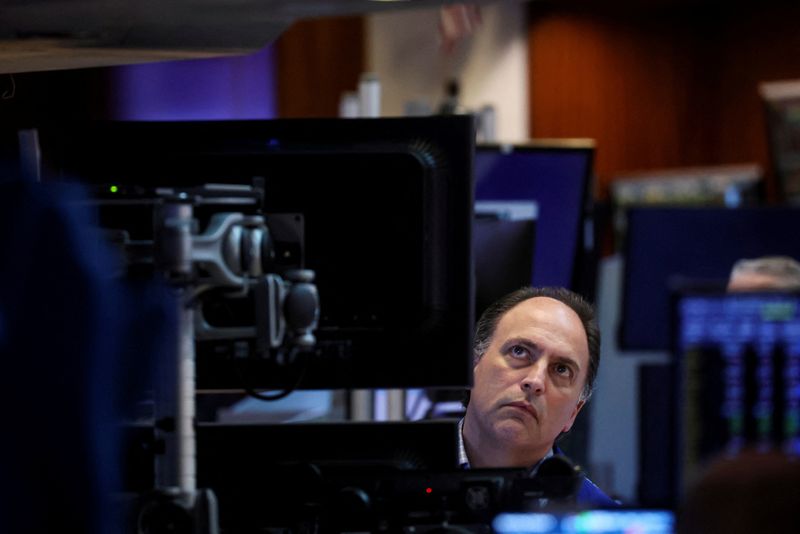TSX runs higher on rate cut expectations
By Geoffrey Smith
Investing.com -- It's the first COVID-free Black Friday in three years, and research is pointing to a healthy rebound in sales on Main Street, despite the challenge of high inflation. China loosens monetary policy a little more to ease the plight of its real estate sector. Germany's economy grew a little more than first thought in the third quarter and the sharp drop in confidence across Europe appears to have bottomed out. Elon Musk announces a general amnesty for suspended accounts on Twitter but has his hands full with recalls at Tesla. And the EU just can't agree on proposed price caps for natural gas and Russian oil. Here's what you need to know in financial markets on Friday, 25th November.
1. China loosens monetary policy again
China's central bank loosened monetary policy again, the latest in a string of official attempts this week to shore up a financial system struggling with the implosion of a housing credit bubble.
The People's Bank of China said it will cut the reserve requirement ratio for most banks by 25 basis points, freeing up around CNY 500 billion ($1=CNY7.1664) in liquidity for the economy. It comes after major state-owned banks said they would offer nearly $200 billion in fresh credit to the sector.
The PBoC has been reluctant to loosen policy too much this year but recent developments in inflation, which has eased over the course of the year, have given it more leeway to open the liquidity taps.
2. Black Friday to benefit Main Street, not online sellers
The first post-COVID Black Friday in three years is set to reassert the primacy of physical stores over online shopping, if only for a day.
Mastercard (NYSE:MA) SpendingPulse expects sales at brick-and-mortar stores to be up 18% from last year, while online sales are expected to rise only 3.7% - considerably less than the rate of inflation.
The holiday is a stiff test of consumer morale, given the steep rise in the cost of traveling, cooking, and hosting this year. The Michigan Consumer Sentiment index published last week was considerably lower than at any time during the pandemic, when generous government support payments and zero interest rates still allowed a seasonal splurge.
3. Stocks set to edge higher in holiday trade; Tesla recalls in focus
U.S. stock markets are set to open a truncated session a little higher later, but it's hard to see anyone getting too excited about market movements on a day when most participants will still be away from their desks.
By 06:30 ET (11:30 GMT), Dow Jones futures were up 72 points or 0.2%, while S&P 500 futures were up by a similar amount, and Nasdaq 100 futures were broadly flat from Tuesday's close. The main supporting factor remains the main takeaway from the Federal Reserve's meeting minutes on Tuesday, which all but confirmed a shift to smaller interest rate increases from December.
Stocks likely to be in focus later include Tesla (NASDAQ:TSLA), which had to issue its 19th recall of the year due to a software glitch that affected some cars' tail lights. China's regulator meanwhile has ordered the recall of nearly 70,000 Teslas due to issues with their seatbelts and possible battery malfunction.
The recalls mean that CEO Elon Musk has yet more on his plate after he announced a general amnesty for suspended accounts on Twitter (although a notable Ukrainian blogger has been suspended after being reported by various Russian accounts). Musk had said he wouldn't take a decision before convening a special council on lifting suspensions.
4. Europe bottoms out - for now
The drip-drip of modestly better news out of Europe improved, as German gross domestic product for the third quarter was revised up and the country’s main consumer confidence index showed further signs of bottoming out.
Europe's largest economy grew 0.4% in the three months through September, rather than the 0.3% initially reported, as pent-up travel demand and the easing of supply chain bottlenecks in industry helped to mitigate the impact of sharply higher energy prices.
The GfK consumer climate inched higher for a second straight month, after some generous collective pay agreements and the announcement of government measures to cap gas and electricity prices.
There were also big rebounds in consumer and business confidence in Italy after the reasonably swift formation of a new government, while Spain’s producer price inflation eased to 25.1% in October from 36.5% in September.
5. EU haggling over oil and gas continues
Crude oil prices recovered overnight, despite signs of ever-sharper declines in mobility in China as the number of COVID-19 cases rises to fresh record highs.
By 06:45 ET, U.S. crude futures were up 2.4% at $79.81 a barrel, while Brent futures were up 1.7% at $86.83 a barrel.
The European Union remains in disarray over plans to impose price caps on exports of Russian oil and on benchmark wholesale market prices for natural gas. The bloc was forced to put off a decision on the latter to another meeting in December, after protests from Spain and others that the cap was set too high to ever take effect. Pressure for a lower cap is coming largely from countries that don't have as much fiscal space as Germany to support consumption over the next six months.
